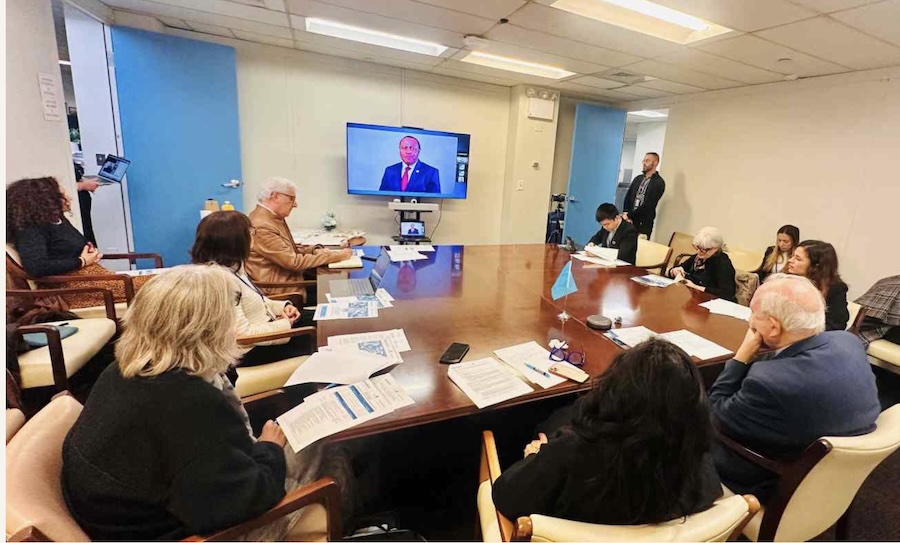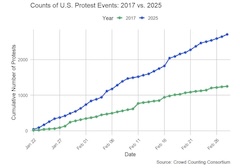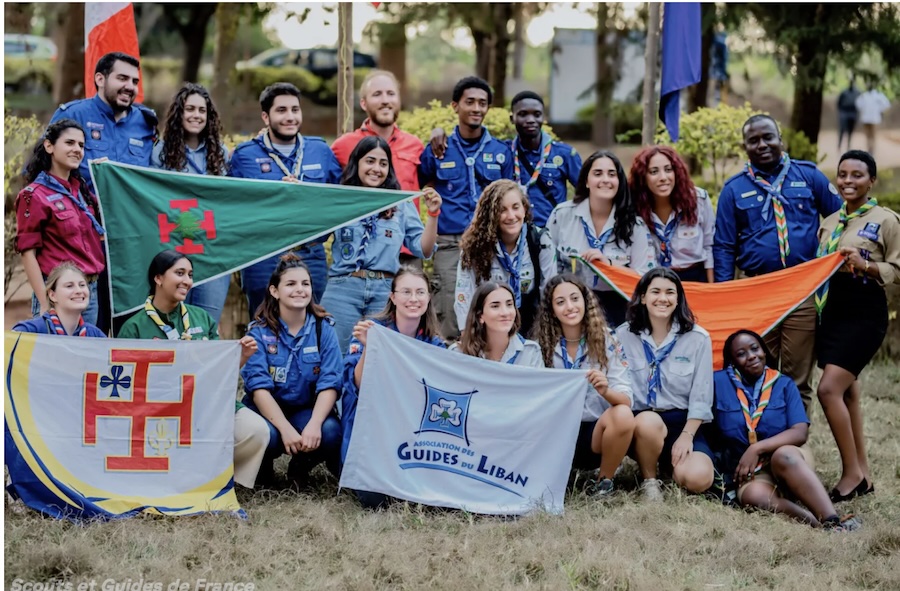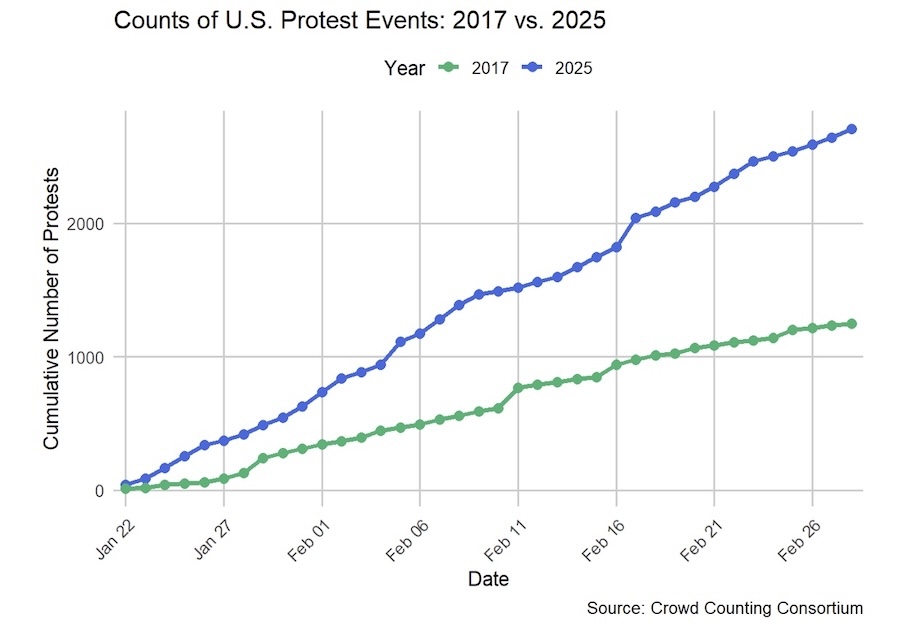FREE FLOW OF INFORMATION .
An article by Jake Johnson in Common Dreams
Across the United States—from Nampa, Idaho to Salt Lake City, Utah to Los Angeles, California—nearly 255,000 people have turned out in recent weeks for “Fighting Oligarchy” rallies headlined by Sen. Bernie Sanders and Rep. Alexandria Ocasio-Cortez, a progressive duo that has railed against President Donald Trump and the corporate-dominated systems that spawned him while outlining a vision of a more just future.

U.S. Sen. Bernie Sanders (I-Vt.) and Rep. Alexandria Ocasio-Cortez rally in Nampa, Idaho on April 14, 2025. (Photo: Natalie Behring/Getty Images)
Over the past six weeks, according to Sanders’ (I-Vt.) office, 254,931 have attended 17 rallies across 11 states and millions have viewed livestreams of the events online. The most recent swing—which included seven stops across four states in less than a week—drew 146,950 people, including in competitive districts with Republican representatives.
“This week, the American people turned out in enormous numbers,” Sanders said in a statement late Wednesday. “And their message was clear. They do not want oligarchy. They do not want authoritarianism. They are tired of massive income and wealth inequality and the greed of the billionaire class. They are tired of a corrupt political system that allows billionaires to buy elections. And, most importantly, they are prepared to fight back.”
The massive, enthusiastic rallies signal mounting nationwide anger over the Trump administration’s large-scale firings of federal workers, assault on fundamental rights, climate destruction, lawless detention and deportation of immigrants, and push to gut Medicaid and other key programs.
(Article continued in the column on the right)
Where in the world can we find good leadership today?
The struggle for human rights, is it gathering force in the USA?
(Article continued from the column on the left)
“This is not Trump’s country. This is our country,” Ocasio-Cortez (D-N.Y.) said Wednesday. “The working class is coming together to defend democracy, fight for one another, and build a better future for all of us.”
The events also indicate a desire among Democratic voters for their leaders to respond more forcefully to the president and his billionaire cronies, including world’s richest man Elon Musk. One recent survey found that 70% of Democratic voters give their party a C grade or below for their response to Trump thus far.
“We need to fight the oligarchy, like the message says. And that’s real, even in a state like Montana, where we’re very red,” one rallygoer told the Montana Free Press at a Missoula event on Wednesday. In the 2024 election, Trump won Montana by just under 20 points and a Republican ousted three-term Democratic incumbent Jon Tester in the Senate.
Another sign of the U.S. public’s readiness to organize and fight back against the Trump administration’s abuses and far-right policy agenda was mass participation in a Wednesday call hosted by the Hands Off! coalition, which helped bring millions into the streets nationwide earlier this month.
According to organizers, tens of thousands of people joined the call, which comes ahead of another national day of action planned for May.
“What we have begun to build is powerful,” Rahna Epting, executive director of MoveOn, said Wednesday. “As Trump continues to chaotically and carelessly implement his wildly unpopular agenda, he creates more distrust, more outrage, and more backlash against it.”
During a stop in Salt Lake City on Sunday, Ocasio-Cortez told a crowd of 20,000 that “we can make a new world, a better country where we can fight for the dignity of all people.”
“It looks like living wages, Utah,” said the New York Democrat. “It looks like stable housing, Utah. It looks like guaranteed healthcare, Salt Lake City. And it looks like respect for all of our differences, no matter who we are or where we come from.”
– – – – – –
If you wish to make a comment on this article, you may write to coordinator@cpnn-world.org with the title “Comment on (name of article)” and we will put your comment on line. Because of the flood of spam, we have discontinued the direct application of comments.















